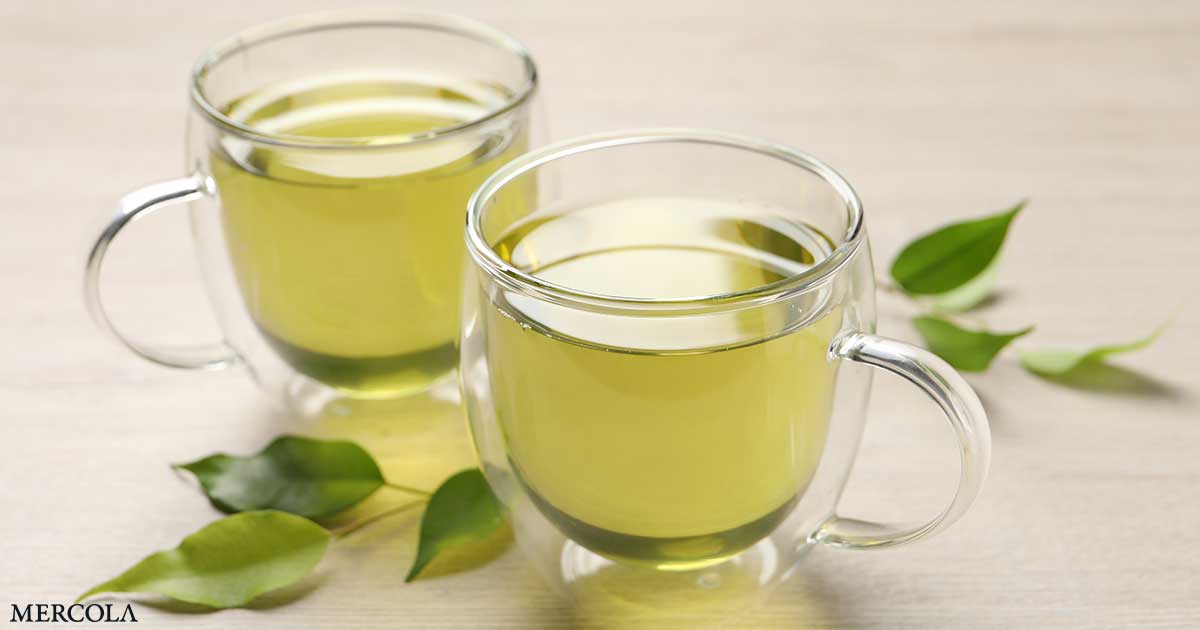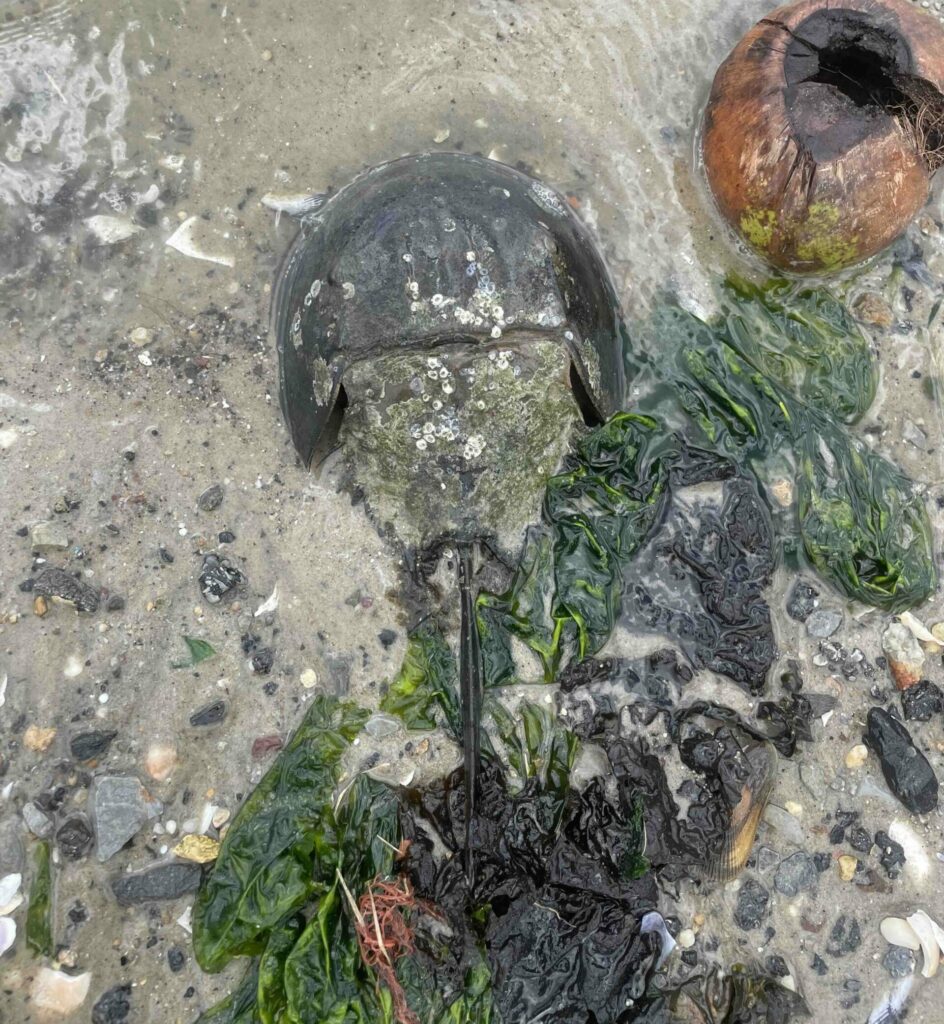Sipping a cup of green tea refreshes and calms you down, especially when you’re stressed or anxious. But there’s more to this beverage than its soothing flavor — it could hold the key to fighting cancer.
Tea (Camellia sinensis) is one of the oldest and most consumed beverages today. There are several different types sold today, such as Oolong or black tea, white tea, and yellow tea. Among these varieties, however, green tea stands out because of its high amounts of flavonoids, called catechins. This is because when tea is processed, or fermented, the beneficial catechins are converted to theaflavins.1
The major catechin found in green tea is called Epigallocatechin gallate (EGCG), and according to recent studies,2,3 this powerful antioxidant offers significant benefits, particularly by helping fight or suppress cancer.
Understanding EGCG’s Therapeutic Potential
In 2023, the American Cancer Society projected nearly 2 million new cancer cases in the United States, with over 600,000 fatalities.4 Fortunately, there are natural dietary compounds that can help prevent or manage this disease.
EGCG is one such example — it’s a natural compound in green tea, renowned for its health benefits. This catechin is not just an antioxidant powerhouse; it plays a significant role in modulating cell signaling pathways, which are crucial in cancer development and progression. EGCG’s ability to influence these pathways makes it a promising candidate in cancer prevention and treatment strategies.
Two studies,5,6 both published in the journal Molecules but a year apart, highlight how EGCG helps protect against cancer. In the most recent review, published in March 2024, the researchers highlight EGCG’s effects against cancer cell lines in animal models, particularly its anti-proliferative, anti-angiogenic and pro-apoptotic properties. Basically, it helps fight cancer by targeting several key aspects that cancer cells depend on to grow and spread.
EGCG Targets Cancer Hallmarks
EGCG’s impact on cancer is profound. According to the 2024 study, EGCG interferes with the signals that cancer cells use to multiply rapidly. By blocking these growth signals, EGCG effectively slows down the division of cancer cells, making it harder for tumors to expand.
In addition to stopping cancer cell growth, EGCG also inhibits angiogenesis, the process through which tumors develop their own blood supply. Without this blood supply, cancer cells receive less oxygen and nutrients, which stunts their growth and reduces the size of the tumor. According to the researchers:
“Cancer regularly needs a blood supply for development, and when this supply is cut off, cancer can become dormant. The ability to inhibit the angiogenesis process is seen as a strength in cancer therapy efforts. Angiogenesis plays an important part in the development of many health problems.”
Furthermore, EGCG promotes apoptosis, which is the programmed death of cells. This means that EGCG helps trigger the natural process that eliminates damaged cells, including cancerous ones, thereby reducing the overall number of cancer cells in the body.
“EGCG has shown promising effects in inducing apoptosis in cancer cells in laboratory studies and animal models. It has been found to activate multiple pathways involved in apoptosis, including the activation of caspases and enzymes responsible for initiating and executing the apoptotic process,” the researchers noted.
The study also highlighted how EGCG affects essential signaling vital for cancer cell survival and metabolism. By targeting these pathways, EGCG not only hampers the growth of cancer cells but also makes them more vulnerable to conventional cancer treatments.
This multifaceted approach is what sets EGCG apart as a potential therapeutic agent. Its ability to target multiple cancer hallmarks at once makes it a promising agent in cancer therapy, offering a comprehensive approach to managing and potentially reducing cancer growth.7
“Anticancer medications are successful in treating cancer, but they can have negative side effects, such as alterations in physiological and biochemical processes, exhaustion, hair loss, infection, nausea, and vomiting. The evaluation of numerous biological compounds and natural products has been demonstrated to have a key role in the prevention and suppression of cancer.
Many experimental and clinical research studies have noted that EGCG has anticancer properties. EGCG is a key physiological anticancer drug due to its role in triggering multiple anticancer processes in many cancer hallmarks,” the researchers concluded.
EGCG Could Protect Against Various Types of Cancer
The earlier Molecules study, published in 2023,8 offers the same conclusions as the newer study. It also highlights some of the mechanisms of action of EGCG and how it positively influences your health. According to the researchers, this potent compound has:9
- Potent antioxidant capacity — EGCG’s antioxidant activity is 25 to 100 times stronger than vitamins C and E. It’s the most active of all the catechins.
- Anti-inflammatory effects — According to the authors, “The results of multiple studies have demonstrated that EGCG modulates the expression of inflammation-associated genes and proteins such as TNF-α, IL-1β, and MMP.”
- Epigenetic influence — EGCG changes how genes are controlled in cells, which affects cancer development. It reactivates genes that prevent cancer growth, suppresses tumor genes and even triggers apoptosis.
The study authors also mention that multiple in-vitro and in-vivo studies have demonstrated the multidirectional, antitumor properties of this catechin. They looked at different types of cancer cells, including bladder, breast, cervical, liver, colorectal, gastric, lung, and head and neck cancers.10
EGCG Impacts Key Cellular Signaling Pathways in Cancer Treatment
The 2023 study also discussed how EGCG targets multiple signaling pathways essential for cancer cell growth and survival.11 By interfering with the Epidermal Growth Factor Receptor (EGFR) pathway, EGCG disrupts the signals that typically promote tumor growth and division. This inhibition helps slow down or even halt the progression of certain cancers.
EGCG also affects the JAK-STAT pathway, which is crucial for transmitting information from chemical signals outside the cell to the cell nucleus, resulting in DNA transcription and activity. By modulating this pathway, EGCG reduces the ability of cancer cells to proliferate and resist cell death.
Additionally, the PI3K-AKT-mTOR pathway, known for its role in regulating cell growth, metabolism and survival, is another target of EGCG. By inhibiting this pathway, EGCG not only suppresses tumor growth but also enhances the effectiveness of other cancer treatments, making it a valuable component in combination therapies.
Beyond these pathways, EGCG’s antioxidant properties play a significant role in its anticancer effects. By neutralizing harmful free radicals, EGCG helps protect cells from DNA damage that leads to cancer development. This combination of pathway inhibition and antioxidant activity makes EGCG a multifaceted agent in the fight against cancer.
Preclinical studies using cell cultures and animal models have consistently shown that EGCG reduces tumor size and prevents metastasis. Clinical trials further support these findings, indicating that EGCG, both alone and in combination with other treatments, improves outcomes for cancer patients. These studies highlight EGCG’s potential as a complementary therapy in cancer treatment protocols.
By targeting these key signaling mechanisms and enhancing the body’s natural defenses against cancer, EGCG demonstrates promising potential in both preventing and treating various types of cancer.
EGCG Has Poor Bioavailability
Despite its promising effects, EGCG faces a major challenge — poor bioavailability. This term refers to the extent and rate at which the active ingredient is absorbed and becomes available at the site of action.
In the case of EGCG, the studies note that its absorption in the human body is limited, which means that achieving effective concentrations in the bloodstream is difficult. This limitation poses a significant barrier to its use in clinical settings.
However, current research is focused on overcoming this hurdle. Scientists are exploring advanced delivery systems to enhance EGCG’s bioavailability. Techniques such as encapsulation in nanoparticles or liposomes are being developed to improve its stability and absorption.12 These innovations will help EGCG reach its target in the body more efficiently, thereby maximizing its therapeutic potential.
Understanding EGCG’s mechanisms and improving its delivery could revolutionize cancer treatment. By making EGCG more accessible and effective, it could become a key component in the fight against cancer, offering a natural and complementary approach to conventional therapies. This knowledge not only highlights the importance of EGCG in cancer research but also opens new avenues for its application in health and wellness.
Here’s a Quick Way to Boost EGCG’s Bioavailability
An easy way to boost the benefits of green tea is by adding vitamin C — in the case of tea, a squirt of lemon juice will do the trick. According to research, vitamin C significantly increases the amount of catechins available for your body to absorb.
A 2020 Indonesian study published in the Pharmacy and Pharmaceutical Sciences Journal (Jurnal Farmasi Dan Ilmu Kefarmasian Indonesia)13 demonstrated the difference in catechin levels in tea after vitamin C was added. The researchers prepared two sets of green tea samples; in one group, different amounts of vitamin C were added, from 1 to 3 milligrams. The other group didn’t have any vitamin C added at all.
After their catechin content was recorded, all the green tea samples were left for four days and then their catechin content was retested. The researchers found that the green tea samples fortified with vitamin C only had a 9.76% decrease in catechins; the samples without vitamin C had their catechins reduced by as much as 19.83%.
“Epigallocatechin gallate (EGCG) is the most abundant green tea catechin with a powerful antioxidant effect to prevent cancer cells. EGCG in green tea solution is highly susceptible to degradation, this is urgent to increase the stability of EGCG by vitamin C addition. Vitamin C regenerates radical EGCG to be normal EGCG,” the authors concluded.14
Meanwhile, adding milk to green tea has the opposite effect. Milk contains proteins that bind to and neutralize the antioxidants in tea, reducing its health benefits. According to one study, “All [beneficial vascular protective] effects were completely inhibited by the addition of milk to tea.”15
Look for High-Quality Green Tea
When buying green tea, know what to look for in terms of quality. One of the telltale signs that you’re drinking high-quality green tea is that the tea is in fact green. If your green tea looks brown rather than green, it’s likely been oxidized, which damages or destroys many of its most valuable compounds.
Brewing loose tea leaves could also offer even more antioxidants. It also helps you avoid potential toxins and microplastics in tea bags. In one 2019 study, researchers found that a single tea bag, when placed in hot water, releases billions of plastic particles.16
A cup of green tea gives you around 20 to 35 milligrams of EGCG, so if you sip three cups in a day, you’ll get as much as 60 to 105 milligrams. Higher doses have also been used in studies, upwards of 1,500 milligrams a day. However, there’s still no clear-cut evidence of exactly how EGCG is best.
The good news is that much of the research on green tea has been based on about three cups daily, which is easily attainable, and enjoyable, for most people.






Leave a Reply